Painless Knee Replacement
What is Knee Replacement Surgery?
Knee replacement, additionally called knee arthroplasty or total knee replacement, is a surgery to restore a knee damaged by arthritis. Metal and plastic parts is used to cover the ends of the bones that make up the knee joint together with the patella. This medical procedure might be considered for somebody who has severe arthritis or a serious knee injury. Dr. Abhijit S. Agashe is one of the Best Knee Replacement Surgeon in Pune and the most experienced surgeon with 13 years of experience in this field.
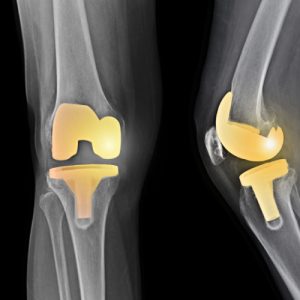
Different types of arthritis might influence the knee joint. Osteoarthritis is a degenerative joint disease that usually occurs in middle-aged and older adults and can cause the bones adjacent to articular cartilage to be destroyed in the knee. Rheumatoid joint pain, which causes inflammation of the synovial membrane and results in excessive synovial liquid, can prompt stiffness and pain. Traumatic arthritis, arthritis because of injury, may cause damage to the cartilage of the knee.
The purpose of knee replacement is to repair the injured part of the knee joint and relieve knee pain that cannot be limited by various treatments.
What are the reasons for Knee Replacement Surgery?
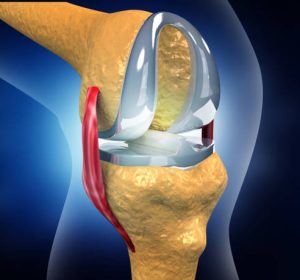
Knee replacement surgery is a therapy for pain and disability in the knee. The most well-known condition that outcomes in the requirement for knee replacement surgery are osteoarthritis.
Osteoarthritis is described by the breakdown of joint cartilage. Cartilage and bone damage can limit movement and cause pain. People with the serious degenerative joint disease might not be able to do ordinary activities that include bending at the knee, for example, walking or climbing steps since they are painful. The knee might swell or “give way” on the grounds that the joint isn’t stable.
Various types of arthritis, such as rheumatoid arthritis and arthritis due to knee injuries, can also cause degeneration of the knee joint. Moreover, fractures, torn cartilage, and additionally torn ligaments might prompt irreversible damage to the knee joint.
In the event that medical treatments are not satisfactory, knee replacement surgery might be an effective treatment. Some medical treatments for the degenerative joint disease might include, however, are not limited to, the following:
- Weight reduction (for obese people)
- Cortisone injections into the knee joint
- Physical Therapy
- Assistive devices for walking (such as a cane)
- Anti-inflammatory Medications
- Glucosamine and Chondroitin Sulfate
- Pain Medications
- Restricting Painful Activities
- Visco supplement injection (to add lubricant to joints and relieve joint movement pain)
There might be different reasons behind your doctor suggesting knee replacement surgery.
What are the Risks of Knee Replacement Surgery?
Similarly, as with any surgery, complications can occur. Some potential complications might incorporate, however, are not limited to, the following:
- Fracture
- Continued with stiffness or pain
- Loosening or wearing out of the prosthesis
- Bleeding
- Infection
- Blood clots in the legs or lungs
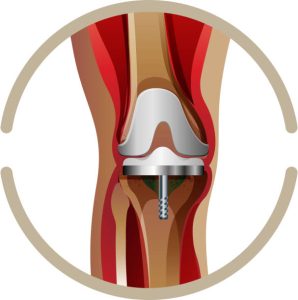
The replacement knee joint might turn out to be loose, be dislodged, or may not work the way in which it was planned. The joint might need to be replaced again in the future.
Blood vessels or nerves in the area of surgery might be injured, bringing about numbness or weakness. The joint pain may not be alleviated by surgery.
There might be different risks relying upon your particular medical condition. Make certain to examine any concerns with your doctor before the procedure.
How to prepare for Knee Replacement Surgery?
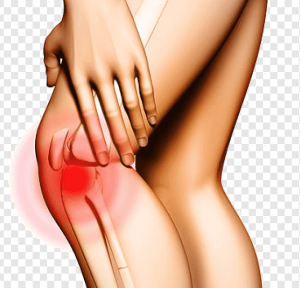
- Medical Evaluation: On the off chance that you choose to have a knee replacement surgery, you might be approached to have a medical assessment before your surgery. This is expected to assess your health and find conditions that could interfere with your surgery or recovery. This will likewise address any anomalies like high blood pressure and can distinguish conditions beforehand undiagnosed like diabetes.
- Tests: Blood tests, a cardiogram, 2-D echo of heart, chest X-ray, urine tests will be required. At times, evaluation of blood circulation in your leg is vital with a Doppler ultrasound scan.
- Medications: Tell your orthopedist about the medications you are taking. He tells you which medications you should stop or continue to take before surgery.
- Weight loss: In case you are overweight, you might be asked to lose some weight before surgery to reduce the weight on your new knee joint.
- Dental Evaluation: Despite the fact that infections after knee replacement are not common, an infection can happen if bacteria enter your bloodstream. Since bacteria can enter the bloodstream during dental methodology, treatment of critical dental infections (counting tooth extractions and periodontal work) ought to be considered before your knee replacement surgery.
- Urinary Evaluation: People with a history of recent or frequent urinary infections ought to consider a urological assessment before knee surgery. Older men with prostate illness ought to consider a urologic assessment and treatment prior to having knee replacement surgery.
- Social Planning: Despite the fact that you will be able to walk with supports or a walker after the surgery, you will require some assistance for several weeks with so many errands as cooking, shopping, bathing.
- Blood Donation: Normally two units of blood should be saved prepared for transfusion during or after the surgery. The blood donation center will require replacement donations from the patient’s family members and friends.
- Setting up Your Skin: Your skin ought not to have any infections or irritations before surgery.
Care after Knee Replacement Surgery:
Your Stay in the Hospital:
Your hospital stay will differ depending upon your recovery and walking. It normally differs from 7 to 14 days after surgery.
You will feel some pain in your knee after surgery. You will get painkillers that will make you feel as comfortable as possible. To stay away from lung congestion after surgery, you will be approached to breathe deeply and cough frequently. Often, a flimsy plastic tube (epidural catheter) is embedded near your spinal cord while giving spinal anesthesia. This catheter is kept up with for a couple of days after surgery and pain-relieving injections are given through this tube. Leg exercises are started when you are comfortable.
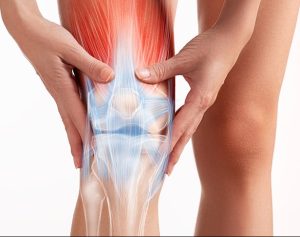
You will have no plaster on your knee except for a massive dressing that will be applied after surgery. On the second day after surgery, the dressing is changed, any drain tubes are taken out and a small dressing is applied. Knee bending is then started.
When you have recovered your thigh muscle power, you can start walking. Most knee replacement patients start standing and walking with the assistance and help of a physiotherapist, 4 to 5 days after surgery. The physiotherapist will encourage you to teach activities to strengthen your muscles and reestablish development in your knee for walking and other normal day-by-day activities.
Your Recovery at Home:
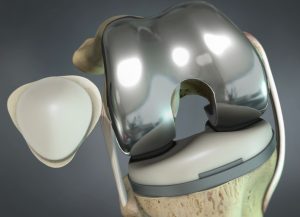
The accomplishment of your surgery will depend in large measure on how well you adhere to your orthopaedic surgeon’s instructions with respect to home care during the initial not many weeks after surgery wound care you will have staples or stitches running along with your injury. The staples or stitches will be eliminated around fourteen days after surgery. Try not to get the injury wet until it has completely dried and sealed. A bandage might be put over the injury to keep the irritation from clothing or support stockings.
Diet some deficiency of appetite is normal for a couple of days after surgery. A fair eating diet, regularly with an iron enhancement, is critical to advance appropriate tissue healing and reestablish muscle strength. Make a habit to drink a lot of fluids.
Action: Exercise is a basic part of home care, especially during the initial not many weeks after surgery. You ought to have the option to continue most normal light exercises of every day living inside three to about a month and a half after surgery. Some discomfort with movement, and around evening time, is common for several weeks.
Your action program ought to include:
- A graduated walking program at first in your home and later outside.
- A walking program to gradually build your mobility and endurance.
- Resuming other normal activities.
- Resuming standing, sitting, walking up, and downstairs.
- Specific activities several times each day to restore development.
- Specific activities several times each day to strengthen your leg muscles.
Why Choose Dr. Abhijit S. Agashe ?
Dr Abhijit S. Agashe is the Best Knee Replacement Surgeon in Pune who performs the surgery using all the advanced technology which gives the best result. He is the most experienced orthopedic surgeon in Pune




